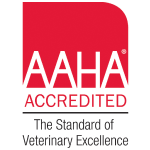As the weather cools and autumn arrives, we all like to enjoy the traditional flavors of the season. But did you know that many of these items can be toxic to your beloved pet? Read on to find out which foods you need to keep away from Fido and Fluffy this autumn.
Chocolate
It’s no secret that chocolate is bad for dogs, but did you know that it may be deadly? Chocolate contains theobromine, a substance that is chemically similar to caffeine. It can induce vomiting, diarrhea, shakes, seizures, and even heart failure in dogs. If you believe your dog has eaten chocolate, call your veterinarian right away. Dark chocolate and baking chocolate are extremely harmful; keep them out of reach!
Xylitol
Xylitol is a sugar alcohol that’s used in low-calorie and sugar-free products as a substitute for sugar. Gum, sweets, toothpaste, mouthwash, baked goods, and some peanut butter all contain xylitol. Xylitol is highly toxic to dogs; even a little amount can induce hypoglycemia (low blood sugar), seizures, liver failure, and death. If you believe your dog has eaten anything containing xylitol, contact your veterinarian immediately.
Alcohol
Just like humans, alcohol can have serious effects on pets. Symptoms of alcohol intoxication in dogs include vomiting, diarrhea, lethargy, trouble walking, slowed breathing, and drooling.
Never give your dog alcohol deliberately and be sure to keep alcoholic beverages out of reach.
Grapes and raisins
Grapes and raisins have been shown to cause kidney failure in dogs. Even a small amount can be dangerous – just four or five grapes can make a small dog sick. If you think your dog has eaten grapes or raisins, call your vet immediately – early treatment is essential for recovery.
Onions and garlic
Onions, garlic, chives, and leeks all belong to the Allium family of plants. They contain thiosulfate, which can damage red blood cells and cause anemia in dogs. Symptoms of onion or garlic toxicity include vomiting, diarrhea, lethargy, and trouble breathing. If you think your dog has eaten any of these items, or possibly consumed items containing onion or garlic powder, which are toxic, as well, get in contact with your veterinarian.
Celebrate safely
Keep your pet safe this autumn by avoiding these common toxins. If you think your pet has ingested something poisonous, call your veterinarian or local animal hospital right away.
Image credit: Pexels


